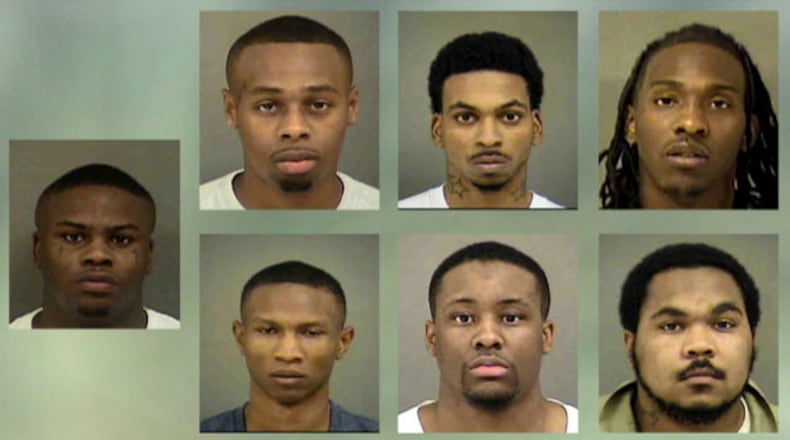A Charlotte-area hip-hop group has been indicted on federal charges after investigators said members flaunted cash, jewelry and cars on social media -- all financed by complicated fraud schemes.
Seven members of the group, FreeBandz Gang, face charges over a $1.2 million bank and identity theft scheme, according to documents.
Detectives with the Charlotte-Mecklenburg Police Department could not discuss the exact details of the case, but told WSOC that a rise in the number of homegrown identity thieves has led them to launch a new task force to stop them.
"It is a lucrative business," Sgt. Robert Sprague said.
Sprague, who investigates financial crimes for the CMPD, said local identity thieves often form groups and rely on people they know to pull of their scams.
"Using other neighbors, friends, family, relatives as their victims. Absolutely, it makes it very dangerous," Sprague said.
Investigators said the FreeBandz Gang members would approach people on social media, or in person, and offer $500 or $1,000 to open an account. Then, the suspects would allegedly deposit altered checks and withdraw money before banks detected the scam, officials said.
The group is also accused of stealing people’s identities to get cars and phones to resell. Federal agents said group members made off with roughly $1.2 million.
"It would be a surprise to everybody that it happens everywhere, every city," Sprague said.
WSOC spoke with a woman over the phone who asked to remain anonymous. She said someone she trusted gave one of the suspects her debit card without her knowledge for the check scheme, hoping for a quick payday.
"When I deposited my check a couple of days later, my bank account had been closed due to fraudulent activity. All my hard-earned money that I actually worked for and saved for my daughter was gone," she said.
Police said that despite what some criminals may think, identity theft and fraud is not a victimless crime.
"We are all at a loss when these financial crimes take place," Sprague said.
The suspects are facing sentences up to 30 years in prison. WSOC reached out to Wells Fargo -- since some of the victims' accounts were with the bank -- and a spokesperson sent resources to protect people from fraud.
About the Author
The Latest
Featured

